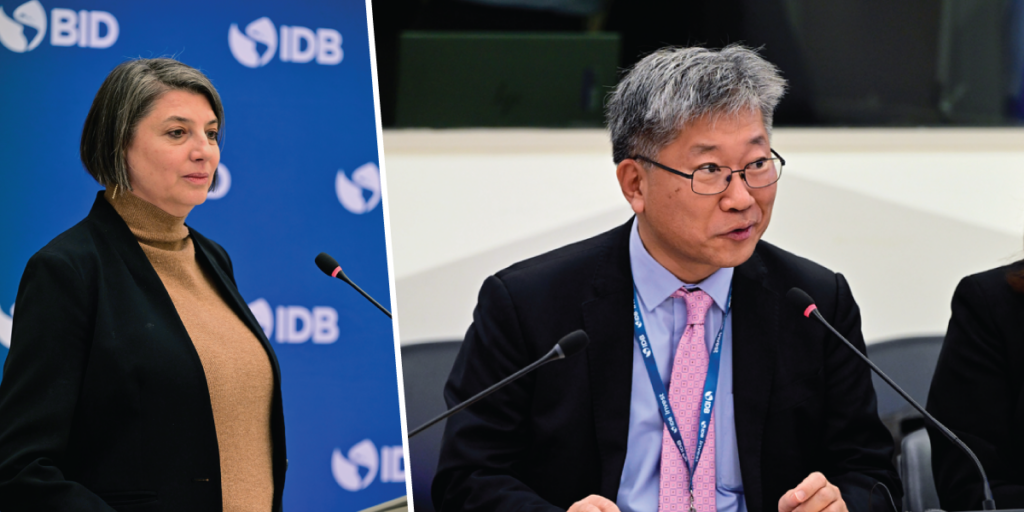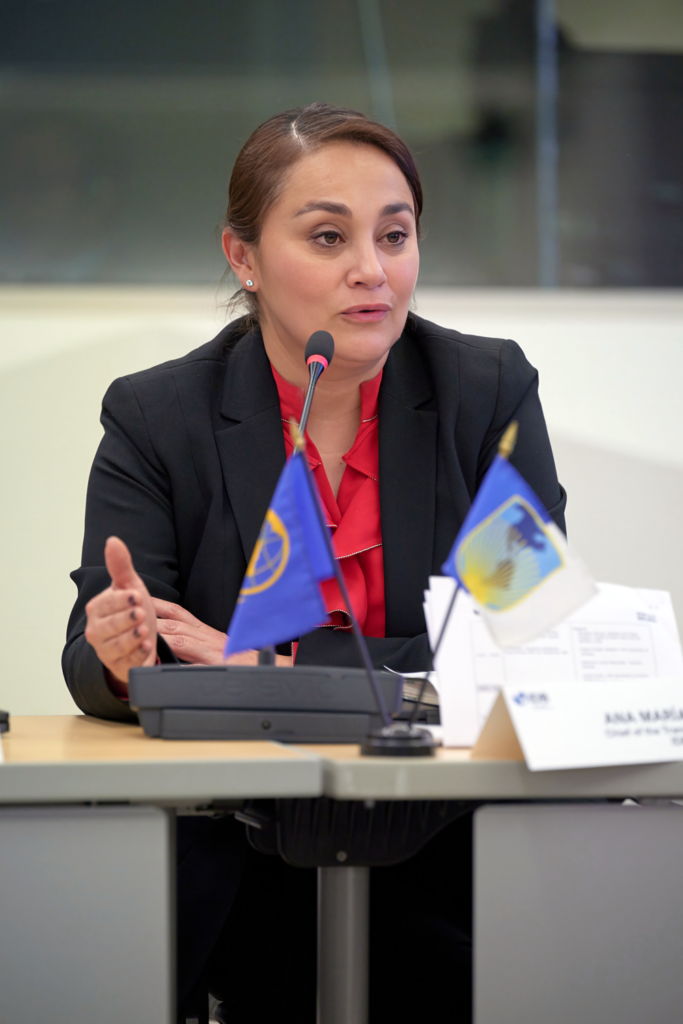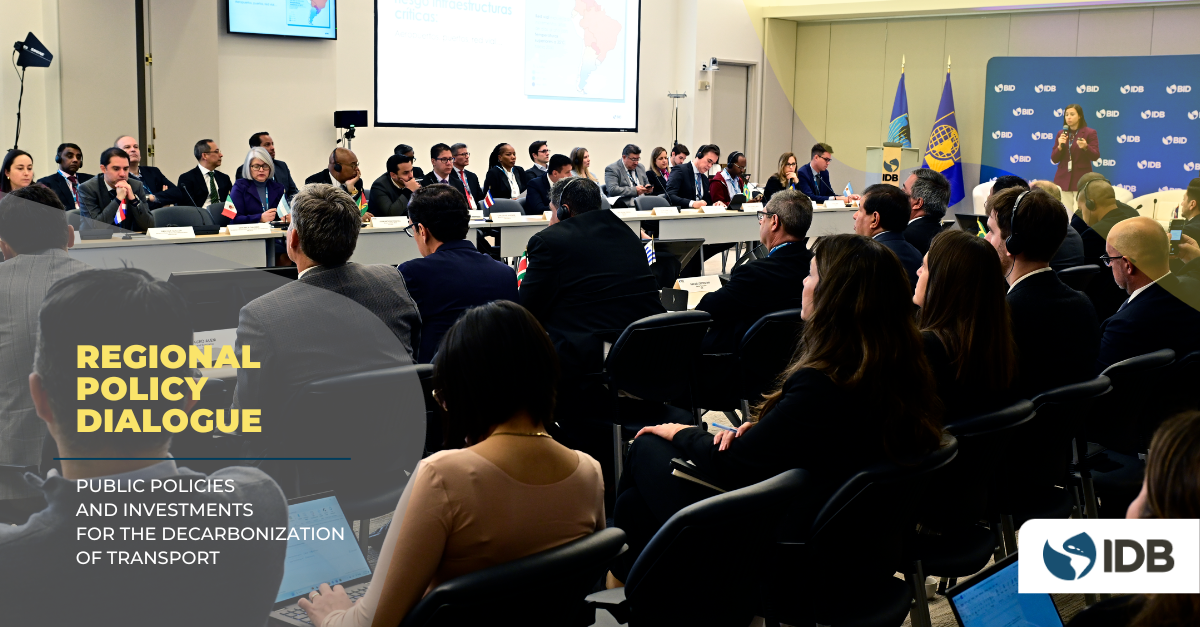Public Policies and Investments for the Decarbonization of Transport
The Inter-American Development Bank Transport Division (IDB) organizes the annual Regional Policy Dialogue (RPD) to convene counterparts from the transportation sectors across the Southern Cone, Andean region, Central America, and the Caribbean. The dialogue focuses on discussing ideas and proposals that scrutinize the policies and investments necessary to advance the decarbonization of the transportation sector.
The RPD witnessed the participation of 96 attendees, including government representatives from over 20 countries, high-level IDB administration, international organizations, members of academia, and private sector stakeholders. They actively engaged in various panels and roundtable discussions on November 29 and 30.
Key interventions from participants include:
Ana María Ibáñez, Vice President of Sectors and Knowledge at the IDB, emphasized the critical need to address climate change in the transport sector, given its significant contribution to CO2 emissions in the region. According to studies by the IDB, transport vehicles in the region generate up to 40% of CO2 emissions from fuel combustion, representing 25% globally. Alarmingly, sector emissions have increased by 17% in the last three decades and could grow even more without intervention.

Young Tae Kim, Secretary-General of the International Transport Forum (ITF), expressed concern about the need for more progress in meeting the goals of the United Nations Paris Agreement. He highlighted the imperative to accelerate the implementation of public policies, emphasizing that the transition to emission-free vehicles needs to progress faster, requiring greater ambition and support for significant change.
Mr. Kim emphasized the call for citizen participation, underscoring society’s preferences as crucial in the transition to more sustainable vehicles and the importance of discussing the types of vehicles societies want for a successful energy transition.
The agenda covered diverse aspects of the transport sector, ranging from urban transport and electromobility to sustainable aviation fuels (SAF), logistics, and maritime transport. This emphasis on tangible actions and concrete projects was prioritized over theoretical discussions.

Financing for successful decarbonization emerged as a central theme. Ana María Pinto, Chief of the IDB’s Transport Division, highlighted the potential for funding from private investors but noted that their current investment is less than 1.1% of the total infrastructure assets. Discussions focused on avenues for public-private collaboration and specific financing.
Encouragingly, progress in electromobility, such as the transition from diesel to electric bus fleets, has significantly advanced in the region and is a focal point for most ministers and mayors in major cities like Santiago de Chile and São Paulo.
Akash Deep, Professor of Infrastructure Financing at the Harvard Kennedy School, stressed the importance of finding value in public and private investments. He suggested a deeper exploration of the value of transportation services and who will bear the cost of the energy transition to advance the conversation. Topics like measuring public and private risks for new technologies and strengthening institutional governance for CO2 reduction in the region were also discussed.
Presentations, bilateral meetings, and dialogues highlighted the IDB’s potential impact in the region, including knowledge generation for the cost-benefit evaluation of adapting road infrastructure to climate change, technical assistance for the implementation of public policies, the role of the Policy Lab, and support for regulatory and institutional reforms to expedite decarbonization.
The Regional Policy Dialogue emphasized the urgency of concrete actions, robust and comprehensive public policies, citizen participation, public-private collaboration, and the significant potential for support from the IDB and other multilateral banks to achieve the decarbonization of the transport sector and effectively address the challenges of climate change in the region in the coming years.


Leave a Reply